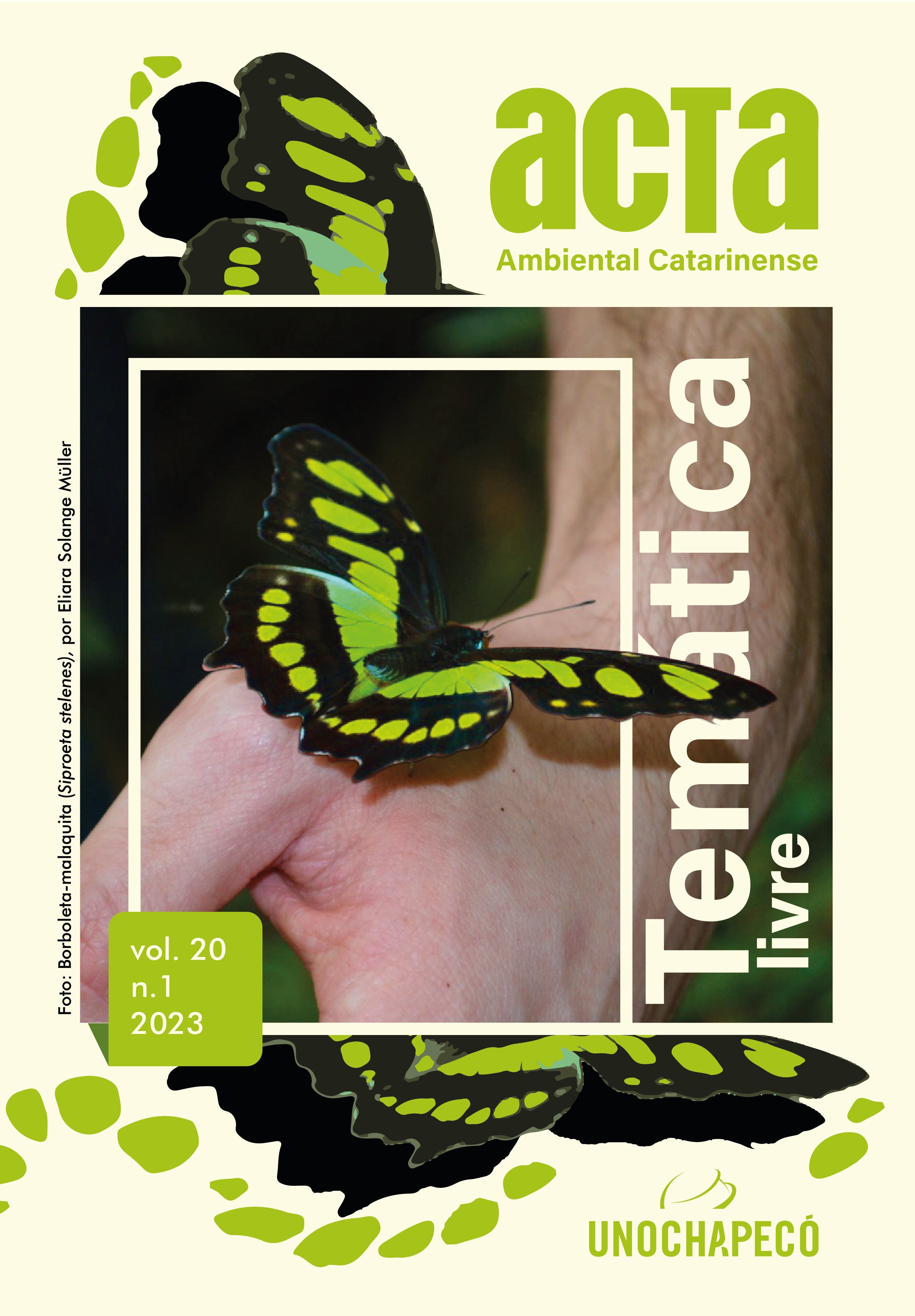DIRECT SEEDING FOR FOREST RESTORATION IN SOUTHERN BRAZIL: INFLUENCE OF SOIL CONDITIONS AND SUBTROPICAL CLIMATE
DOI:
https://doi.org/10.24021/raac.v20i1.6142Palavras-chave:
Seedling emergence. Survival. Low temperatures. Soil quality.Resumo
In this study, we evaluated the direct seeding of tree Atlantic Forest species for ecological restoration under subtropical climate. We aimed to answer: Are the seedling survival and development influenced by the low temperatures in the winter or soil conditions? Which species have the best development and are most suitable for restoration projects in the subtropical region? The study was carried out in a degraded riparian forest in the center of the Rio Grande do Sul state, southern Brazil. The seeded species were Schinus terebinthifolia Raddi, Psidium cattleyanum Sabine, Eugenia uniflora L., Cupania vernalis Cambess., Prunus myrtifolia L. (Urb.), Zanthoxylum rhoifolium Lam. Evaluations were performed monthly for 12 months. Generalized linear models (GLM) were evaluated using emergence, survival and seedling height as response variables, also species and time as explanatory variables with the Gamma distribution. The species that germinated were P. cattleyanum, E. uniflora and C. vernalis. Eugenia uniflora presented a higher germination rate (83.33%) and survival (80.00%) at 360 days after sowing. The species did not differ in height growth. We noted differences in height development over time caused by winter conditions. Cupania vernalis and E. uniflora may be considered as potential species for direct seeding in their natural occurrence areas in southern Brazil. Our study highlights the importance of enhancing ecological aspects of direct seeding.
Downloads
Downloads
Publicado
Edição
Seção
Licença
Copyright (c) 2022 Revista Acta Ambiental Catarinense

Este trabalho está licenciado sob uma licença Creative Commons Attribution-NonCommercial-NoDerivatives 4.0 International License.
Estou ciente de que, em sendo aprovado, a publicação do artigo será no formato on-line no Portal de Periódicos da Unochapecó.Também tenho ciência de que há autorização para assumir contratos adicionais separadamente, para distribuição não-exclusiva da versão do trabalho publicada nesta revista (ex.: publicar em repositório institucional ou como capítulo de livro), com reconhecimento de autoria e publicação inicial nesta revista.
















